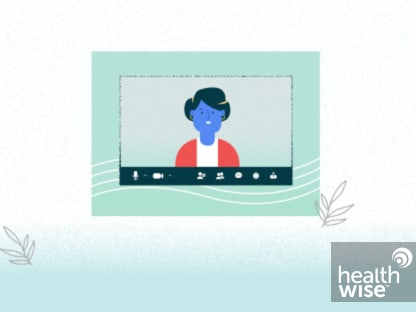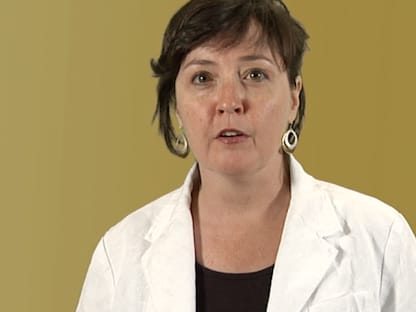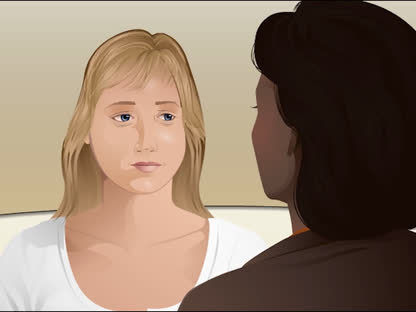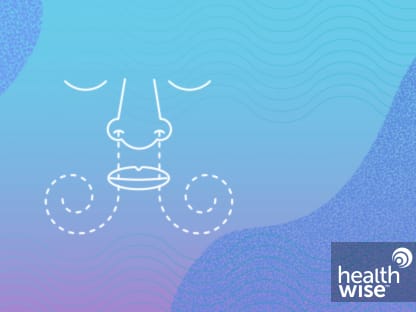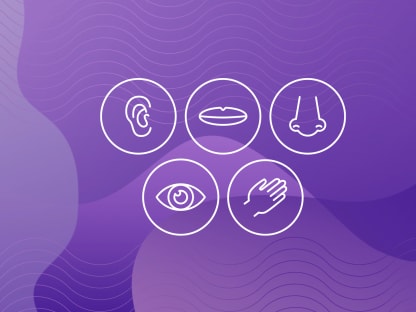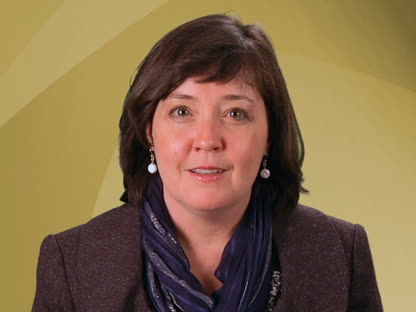Bulimia Nervosa
Condition Basics
What is bulimia?
Bulimia is a type of eating disorder. People with bulimia will eat a larger amount of food than most people would in a similar situation, in a short time (binge). Then they do something to prevent weight gain. They may vomit or use medicines like laxatives to get rid of food (purge). Or they may exercise too much or go without food (fast). This becomes a cycle.
People who have bulimia judge themselves harshly on their body weight and shape. During a binge, they feel out of control and feel unable to stop eating. After binge eating, they feel very afraid of gaining weight. This fear causes them to do things like purge, exercise too much, or fast in hopes of "undoing" any possible weight gain from the binge.
Without treatment, bulimia can lead to serious, long-term health problems.
What causes it?
Experts don't know what causes eating disorders such as bulimia. But they may be caused by a mix of family history, social factors, and personality traits. Some things may make you more likely to have bulimia, such as a family history of eating disorders, dieting often, or having a poor body image.
What are the symptoms?
People with bulimia binge eat on a regular basis. During a binge, they feel out of control and unable to stop eating. To avoid weight gain, they may make themselves vomit, exercise very hard, misuse laxatives or other medicines, or fast. They base how they feel about themselves on how much they weigh.
How is it diagnosed?
Your doctor will ask you questions to see if you have the main symptoms of bulimia. If your doctor thinks that you may have bulimia, they will check you for problems caused by this condition, like poor nutrition or electrolyte imbalances. The doctor will do a physical exam and ask about your medical history.
How is bulimia treated?
Bulimia can be treated with counseling and sometimes medicines, such as antidepressants. Getting treatment early can make recovery easier. And it can prevent serious health problems.
What should you do if you think someone has an eating disorder?
If you think your child has an eating disorder:
- Talk to them. Tell your child why you're worried. Let them know you care.
- Make an appointment for you and your child to meet with a doctor or a counselor.
If you're worried about someone you know:
- Tell someone who can make a difference, like a parent, a teacher, a counselor, or a doctor. A person with an eating disorder may say that they are okay and don't need help. You can help by encouraging them to talk to someone they trust.
Health Tools
Health Tools help you make wise health decisions or take action to improve your health.
What Increases Your Risk
Experts don't know for sure what causes someone to have an eating disorder such as anorexia, bulimia, or binge eating. But certain things put a person at greater risk for getting an eating disorder. Some of these things include:
- Having a family history of an eating disorder.
- Struggling with depression, anxiety, low self-esteem, or obsessive behaviors.
- Feeling a need to be perfect.
- Feeling social or cultural pressure about thinness or weight.
- Having a poor body image.
- Taking part in sports or activities that encourage thinness. Modeling and dance are examples.
- Having a history of physical or sexual abuse.
Having risk factors for it doesn't mean a person will get an eating disorder. But knowing some of the things that can add to the risk may help to see a problem early when it is easier to treat.
Learn more
Prevention
There is no known way to prevent an eating disorder. But knowing the early signs and seeking treatment right away can help prevent problems caused by an eating disorder. Early treatment may be the best way to prevent it from getting worse.
Symptoms
People with bulimia:
- Binge eat on a regular basis. They eat larger amounts of food than most people would in a similar situation, in a short period of time (2 hours or less). During a binge, they feel out of control and feel unable to stop eating.
- Do something to avoid weight gain. They may make themselves vomit or misuse laxatives, enemas, water pills (diuretics), or other medicines to get rid of food (purge). Or they may exercise very hard or for a long time or go without food (fast).
- Base how they feel about themselves on how much they weigh and how they look.
Any one of these can be a sign of an eating disorder that needs treatment.
Other signs that a person may have bulimia
If you are concerned that someone you know has bulimia, look for these signs. A person may have bulimia if they:
- Go to the bathroom right after meals.
- Are secretive about eating, hide food, or won't eat around other people.
- Exercise a lot, even when they do not feel well.
- Often talk about dieting, weight, and body shape.
- Use laxatives or diuretics often.
- Have teeth marks or calluses on the back of their hands or swollen cheeks or jaws. These are caused by making oneself vomit.
People who have bulimia can be any weight. They may binge in secret and deny that they are doing anything to avoid weight gain, like purging. This makes it hard for others to know that a person with bulimia has a serious problem.
What Happens
People who have bulimia will eat a large amount of food in a short period of time (binge). Then they do something to avoid weight gain. They may vomit, exercise too much, use medicines like laxatives, or go without food (fast). This starts a cycle that can lead to serious, long-term health problems.
Health problems caused by bulimia include tooth and mouth problems and dehydration. They also include weakness, fainting, and damage to the esophagus. Mental health conditions may also occur along with bulimia. Sometimes bulimia can cause death.
After bulimia becomes a pattern, it is very hard to return to healthier eating habits without help. But bulimia can be treated. And many people who seek treatment get better.
When to Call a Doctor
Call 911 or other emergency services immediately if:
- You have severe anorexia, and starvation has become life-threatening.
- You or someone you know is thinking seriously of suicide or has recently tried suicide. Serious signs include these thoughts:
- You have decided how to kill yourself, such as with a weapon or medicines.
- You have set a time and place to do it.
- You think there is no other way to solve the problem or end the pain.
- You feel you can't stop from hurting yourself or someone else.
Where to get help 24 hours a day, 7 days a week
If you or someone you know talks about suicide, self-harm, a mental health crisis, a substance use crisis, or any other kind of emotional distress, get help right away. You can:
- Call the Suicide and Crisis Lifeline at 988.
- Call 1-800-273-TALK (1-800-273-8255).
- Text HOME to 741741 to access the Crisis Text Line.
Consider saving these numbers in your phone.
Go to 988lifeline.org for more information or to chat online.
Call your doctor now if you have been diagnosed with bulimia and now:
- Cannot pass urine.
- Notice that your heart skips beats or beats slower than normal.
- Have severe belly pain, are vomiting up blood, or have black, sticky stools that look like tar. These signs may mean that there is bleeding in the digestive tract.
Call your doctor to discuss bulimia if you:
- Binge and then purge to get rid of food.
- Have lost a lot of weight and can't stop losing weight.
- Fear gaining even a small amount of weight, and this interferes with eating healthy meals.
- Notice that you are secretive or lie about your eating habits.
- See yourself as fat and feel that you must diet, even when other people say you look too thin.
- Have been making yourself vomit or are abusing laxatives or diuretics.
- Are not having menstrual periods when you should.
- Feel the need to exercise a lot, and don't give yourself healing or rest time when you are injured or exhausted.
Watchful waiting
Watchful waiting is a wait-and-see approach. It's not a good choice if you think you or someone you know may have an eating disorder. Call a doctor or an eating disorder hotline to discuss your concerns and learn what you can do to help.
Exams and Tests
There is no single test that can diagnose bulimia. But this condition may have a visible effect on your health and eating habits.
Your doctor will ask you questions about your eating habits. This is to see if you have the main symptoms of bulimia. If your doctor thinks that you may have bulimia, they will check you for problems caused by this condition, such as poor nutrition or electrolyte imbalances.
The doctor will do a physical exam. They may ask questions about your medical history, including your physical and emotional health. Often other mental health conditions occur along with bulimia. These may include depression, anxiety, or obsessive-compulsive disorder.
You may have blood tests or X-rays to check for signs of poor nutrition.
Learn more
Treatment Overview
Bulimia can be treated with counseling and sometimes medicines. If a person has another health condition along with bulimia, more treatment may be needed. (For example, with depression an antidepressant may be used.) And it may take longer to get better.
Cognitive behavioral therapy (CBT) and interpersonal therapy (IPT) are types of counseling used to treat bulimia. In CBT, you learn how to change negative thoughts that you may have about food, your weight, and your body. You learn to change negative beliefs about yourself. In IPT, you learn how relationships can affect the binge-eating cycle.
These are long-term treatments. It may take weeks or months before you notice changes. You may need treatment with counseling and maybe medicines for more than a year. But getting treatment early can prevent serious health problems. And learning how to manage stress while you recover can make recovery easier.
Learn more
Watch
Self-Care
Here are some things you can do to take care of yourself during recovery from an eating disorder.
- Try to stick to your treatment plan. Go to any counseling sessions you have. If you can't go, or if you don't think the sessions are helping, talk to your counselor about it. And take any medicines you've been prescribed exactly as directed.
- Work on healthy eating habits. Listen to what your counselor and dietitian say about healthy eating. You can work with them to make a plan to eat a variety of healthy foods.
- Learn healthy ways to deal with stress. Managing stress is important in recovery. Find what works for you. You could try things like journaling, volunteering, reading, or meditating.
- Get support from others. This might be from caring family members or friends or an eating disorders support group.
- Take it easy on yourself. Focus on your good qualities. Don't blame yourself for your disorder. And remember that recovery takes time and that you can make progress one goal at a time.
Learn more
Watch
Related Information
Credits
Current as of: October 1, 2025
Author: Ignite Healthwise, LLC Staff
Clinical Review Board
All Ignite Healthwise, LLC education is reviewed by a team that includes physicians, nurses, advanced practitioners, registered dieticians, and other healthcare professionals.
Current as of: October 1, 2025
Author: Ignite Healthwise, LLC Staff
Clinical Review Board
All Ignite Healthwise, LLC education is reviewed by a team that includes physicians, nurses, advanced practitioners, registered dieticians, and other healthcare professionals.
